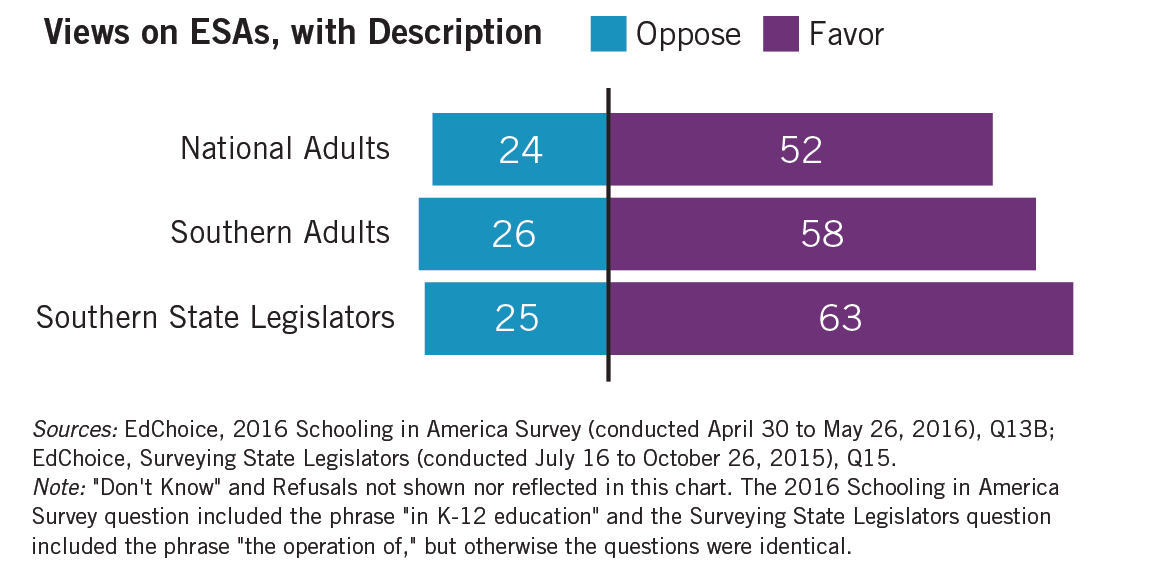Georgia Bill Could Make Educational Choice Available to All
Friday, Georgia’s Senate Education and Youth Committee will hear the Individual Student Education Act. The bill, if passed as currently worded, would create a completely universal education savings account (ESA) program.
School choice is heating up faster than Hotlanta on a sunny day in July during a dry spell! Georgia would be expanding its educational choice programs from the Georgia Special Needs Scholarship Program—a voucher program with more than 4,000 students participating in 2015–16—and the Qualified Education Expense Tax Credit—a tax-credit scholarship with nearly 13,000 scholarships awarded in 2015—into a universal educational choice program. Currently, Nevada is the only state with a universal program in operation, though families there are awaiting funding for their accounts.
The potential Georgia program would operate similarly to ESAs in other states. Here’s how it would work:
Student Eligibility
Students must be residents of the state who are eligible to attend a Georgia public school (all K–12 students). Accounts will be capped at 0.5 percent of the statewide public school enrollment in 2017–18, 1.5 percent in 2018–19, and the cap will be removed in 2019–20.
Students would not be able to receive both an ESA and a voucher for students with special needs.
Student Funding
Potential ESAs would be equivalent to the state Quality Basic Education funds that would have been spent per student in public school, projected to be worth an estimated $4,500.
Allowable Uses
Funds may be used to pay for:
- Tuition and fees at an eligible private school
- Online learning programs
- Textbooks, curriculum and other instructional materials
- Tutoring services
- Public school classes or educational services (as long as the student does not attend full-time)
- Community college costs
- Higher education expenses
- Fees for testing, including nationally norm-referenced tests, AP exams and college placement exams
- Services for students with special needs
Up to half of the deposited funds that are unused at the end of a school year may be rolled over to the next school year, which can continue until a student turns 25 years old.
Regulations
Parents must sign an agreement to provide an education in at least English and language arts, mathematics, social studies and science outside of a public school.
Participating private schools must be accredited or in the process becoming accredited by a state-approved accrediting organization, and they must administer a nationally norm-referenced test or a state assessment.
Participating private tutors must be accredited or certified by a regionally or nationally recognized accrediting organization or be teachers certified in the state.
What the Research Says
EdChoice has been polling the public on their views on K–12 education and school choice since 2010. Last fall, EdChoice Vice President of Research and Innovation Paul DiPerna released Surveying State Legislators. In his report, DiPerna examined the responses of 344 state legislators to questions about education policy, the profession and more.
The 97 Southern state legislators that responded to the survey were asked if they favored or opposed ESAs. More than three-fifths of the respondents in the South (63%) said they favored ESAs and approximately one-fourth (25%) said they opposed ESAs.
The below chart shows state legislators’ favorability toward ESAs and survey responses from our 2016 Schooling in America Survey, which had an entire national sample of 1,001 adults and a sample of 371 adults in the South. Nearly three-fifths of adults in the South favor ESAs (58%), which is more than the 52 percent of all adults. However, a slightly larger percentage of Southerners are opposed to ESAs (26%) compared to all Americans (24%). Although every state is unique, it is encouraging to see that Southerners are more favorable towards ESAs than the rest of the nation, and this is even more so with Southern state legislators.

The Peach State has a chance to expand personalized learning options to all K–12 students in the state, and we here at EdChoice think the legislators who are paving the way for Georgia to become a leader in educational choice have a whole lot of gumption.
It’s time for all Georgia families to have the opportunity to exercise their wisdom and justice when it comes to their children’s education.




